Update
Earth Overshoot Day 2020: Take a Step to #MoveTheDate
Earth Overshoot Day 2020
Each year, Earth Overshoot Day marks the date when humanity has used all the biological resources that Earth can renew during the entire year.
In 2020, the Earth Overshoot Day lands on 22 August, more than three weeks later than in 2019, which is a direct consequence of the coronavirus-induced lockdowns around the world. Decreases in wood harvest and CO2 emissions from fossil fuel combustion are the major drivers behind the historic shift in the long-term growth of humanity’s Ecological Footprint.
From 22 August until the end of the year, humanity is drawing in the stock of natural resources that Earth accumulated. Today humanity uses the equivalent of 1.6 Earths per year.
Earth Overshoot Day is hosted and calculated by Global Footprint Network, an international research organization that aims to provide information and solutions to live in the means of the planet.
Country Overshoot Days
A Country Overshoot Day reflects the ecological footprint of a country by comparing the population’s demand and the nation’s biocapacity.
Switzerland’s Overshoot Day 2020 was 8 May. Last year, it was on 7 May. This means that if everybody on the planet was living like a Swiss, humanity would need the resources of three planets per year. This makes Switzerland the 41st country on the list of national overshoot days.

Calculate your ecological footprint

Global Footprint Calculator
The Footprint Calculator computes for an individual how many planets would be needed if everyone on Earth had the same lifestyle than this individual. In order to do so, it calculates how much biologically productive area is needed to produce the resources for the human population and to absorb its carbon dioxide emissions.
Smart consumption Guides
Various applications and guides allow you to learn about responsible consumption and production, and change your habits. Here are some of them to start with.

CLEVER
The Biovision Foundation has created the platform CLEVER where consumers can evaluate the sustainability of everyday consumer products and find advice to have a responsible consumption.

YUKA
The YUKA application created in France in 2017 and available in other countries including Switzerland, aims at informing consumers on the content of food and cosmetic products and guiding them towards a healthier consumption. It can help consumers to use less resources as it provides them with incentives to think about their consumption habits.

Guide WWF
This application, available in Switzerland, gives consumers eco-tips to have a responsible consumption. For example, it gives advice on how to buy seafood, fruits and vegetables, souvenirs, and information on labels, among other things.

Palm Oil Buyers Scorecard by WWF
The Palm Oil Buyers Scorecard allows consumers to get information on their favorite brands to see if they are committed to a responsible palm oil future, free from deforestation and destruction of nature. It reveals information on 132 companies.
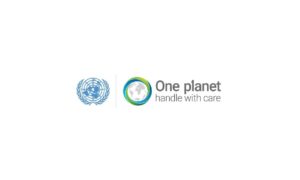
One planet network
One Planet network is a multi-stakeholder partnership, adopted in 2012, that supports the implementation of Sustainable Development Goal 12 – Responsible consumption and production – through various programs on, consumer information, food systems and tourism, among others.

Labelinfo.ch
Labelinfo.ch is a platform of the Pusch Foundation, allowing consumers to learn more on labels. Since 2015, it regroups information on the management, the environmental and social aspects, the processes and the controls of the major labels of the food sector.
More on sustainable consumption and production

WWF Changing Fashion Report
In this report from 2017, WWF gives alternatives to consumers to reduce their clothing’s consumption, to take care and repair their clothes, to reuse through for example second-hand shops, and to recycle their clothes. Moreover, consumers can find information on the textile industry: WWF has assessed and compared the environmental
stewardship of 12 major brands.
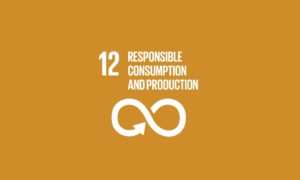
UN Sustainable Development Goal 12
Sustainable Development Goal 12 – Responsible consumption and production – aims to create a sustainable consumption and production by using less natural resources, by increasing resource efficiency and by promoting sustainable lifestyles.
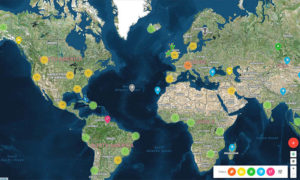
#MoveTheDate Campaign
Here’s what people around the world are sharing on social media to #MoveTheDate
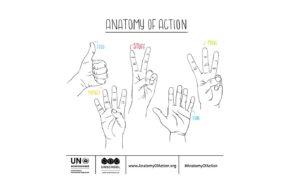
The Anatomy of Action Campaign
The Anatomy of Action, developed by UNEP and UnSchool, aims to define and communicate the most positively impactful actions anyone of us can take to contribute to a sustainable world. The 15 days challenge will give you ideas on what actions you can take.
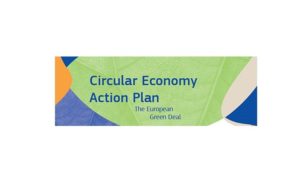
EU Circular Economy Action Plan
In the framework of the European Green Deal, the European Union adopted a new Circular Economy Plan in March 2020. In the following document, you can discover the different measures of this plan.

Joint EEA-FOEN report: "Is Europe living within the limits of our planet?"
The European Environment Agency (EEA) and the Swiss Federal Office for the Environment (FOEN), published in April 2020, a joint study which assesses selected environmental footprints for Europe based on the concept of planetary boundaries.
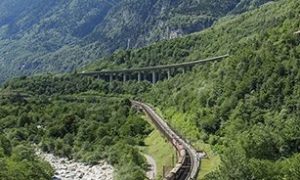
Utilization of natural resources in Switzerland
Discover what is happening in Switzerland concerning the use of natural resources and which measures are taken to have a more efficient use. The Swiss Federal Office for the Environment creates reports and initiatives to reach this goal.
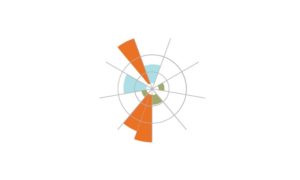
Planetary boundaries concept
Learn more on the concept of “planetary boundaries” developed by the scientists Rockström et al. from the Stockholm Resilience Centre.
Events

Earth Overshoot Day: European launch event
On 20 August 2020 at 9:00 am CEST, you can join The Club of Rome and Global Footprint Network for an engaging online session streamed live on Youtube.
Latest news
Find more information on the Overshoot Day 2020.
- Earth’s resources for 2020 have been all consumed on last Saturday | Kyra Dupont | Geneva Solutions | 22 August 2020
- On Earth Overshoot Day, here are 3 signs of hope for our future | Maelle Pelisson (Business for Nature) | WEF | 21 August 2020
- Earth Overshoot Day and COVID-19 Bring Food System Challenges into Focus | Marta Antonelli, Alessandro Galli, Laetitia Mailhes, Mathis Wackernagel | Diplomatic Courrier | 21 August 2020
- Human consumption of the Earth’s resources declined in 2020 | Alex Mistlin | The Guardian | 21 August 2020
- COVID-19 has Caused Humanity’s Ecological Footprint to Contract by 3 Weeks | WWF | 13 August 2020
- Mathis Wackernagel : A day to reflect on what we’re doing to the planet | The Herald | 20 July 2020
- Earth Overshoot Day is August 22, more than three weeks later than last year | Global Footprint Network | 5 June 2020
- If everyone lived like the Swiss, we would need the natural resources of three planets | Susan Misicka | SWI swissinfo.ch | 8 May 2020
- Europe’s environmental footprints exceed several safe limits | EEA | 17 April 2020

